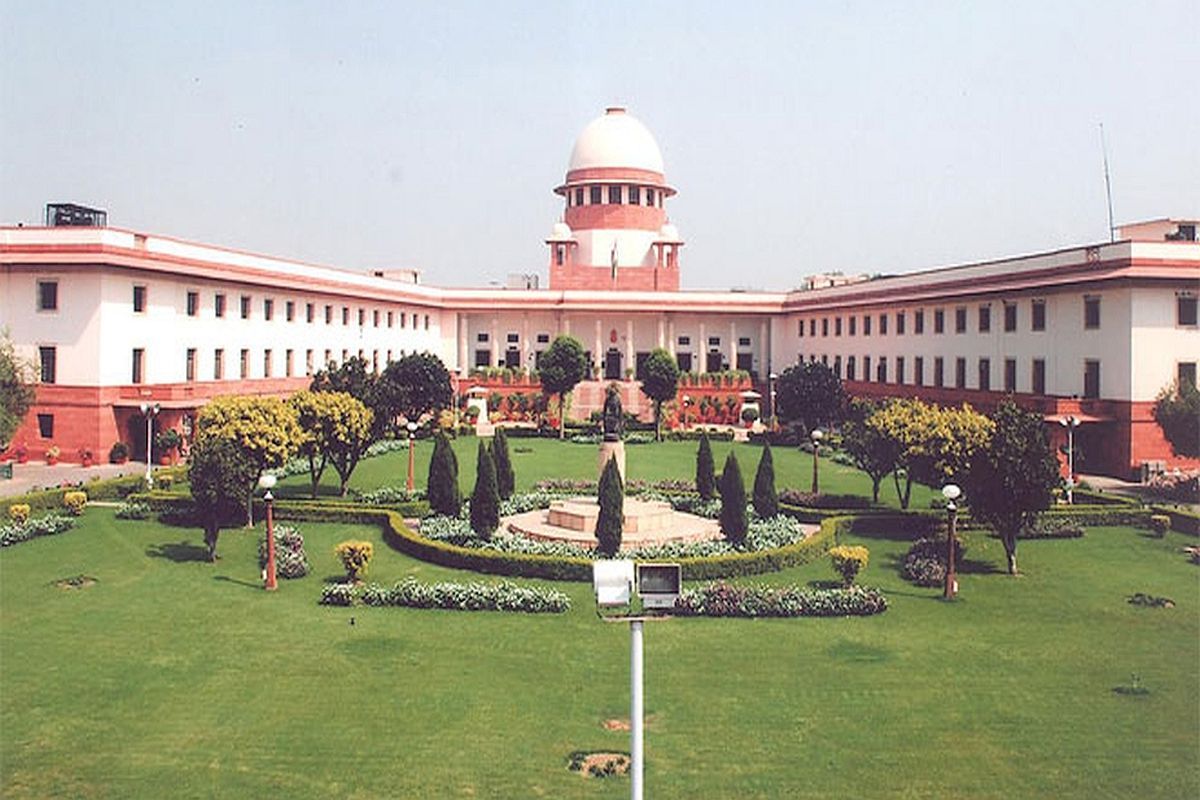SC seeks ED response on bail plea by ex-Jharkhand CM Hemant Soren
said that it will be open to Jharkhand High Court to deliver its judgement on the former Chief Minister Sorem’s plea challenging his arrest in an alleged money laundering case.
In regard to the provisions of Article 21 of the Constitution of India, it has become imperative to ensure that the spread of coronavirus within the prisons is controlled, the court said.

Supreme Court (Photo: AFP)
The Supreme Court today directed all states and Union Territories to constitute high-level committees to consider releasing on parole or interim bail prisoners and undertrials for offences entailing up to 7-year jail term to decongest prisons in the wake of the coronavirus pandemic.
The top court said overcrowding of prisons is a matter of serious concern, particularly in the present context of coronavirus (COVID 19).
In regard to the provisions of Article 21 of the Constitution of India, it has become imperative to ensure that the spread of coronavirus within the prisons is controlled, the court said.
Advertisement
A bench of Chief Justice S A Bobde and Justices L N Rao and Surya Kant said the state or UT could consider the release of prisoners who have been convicted or are undertrials for offences for which prescribed punishment is up to 7 years or less, with or without fine and the prisoner has been convicted for a lesser number of years than the maximum.
“We direct that each State/Union Territory shall constitute a High Powered Committee comprising Chairman of the State Legal Services Committee, the Principal Secretary (Home/Prison) by whatever designation is known as, Director General of Prison(s), to determine which class of prisoners can be released on parole or an interim bail for such period as may be thought appropriate,” it said.
The top court said it would be open for the High Powered Committee to determine the category of prisoners who should be released depending upon the nature of offence, the number of years to which he or she has been sentenced or the severity of the offence with which he/she is charged with and is facing trial or any other relevant factor, which the Committee may consider appropriate.
“Taking into consideration the possibility of outside transmission, we direct that the physical presence of all the undertrial prisoners before the Courts must be stopped forthwith and recourse to video conferencing must be taken for all purposes,” the bench said, adding that the transfer of prisoners from one prison to another for routine reasons must not be resorted to except for decongestion to ensure social distancing and medical assistance to an ill prisoner.
It directed that there should not be any delay in shifting sick person to a nodal medical institution in case any possibility of infection is seen and prison specific readiness and response plans must be developed in consultation with medical experts.
“A monitoring team must be set up at the state level to ensure that the directives issued with regard to prison and remand homes are being complied with scrupulously,” it said.
Advertisement